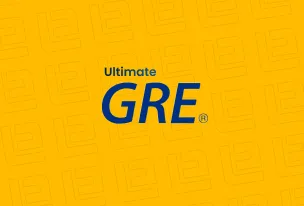German Language Course is specifically designed to help individuals learn German easily and effectively. This piece aims to delve into the significance of acquiring knowledge in the German language, the advantages it presents, and the steps to commence a prosperous course in the German language. So, if you are interested in expanding your language skills and learning German, keep reading!
In today’s interconnected world, mastering a new language like German can open up a plethora of opportunities, not just professionally but also personally. German is spoken by over 130 million people worldwide and is the official language in countries such as Germany, Austria, Switzerland, and Liechtenstein. It’s also one of the most widely taught foreign languages in schools across Europe and beyond. Whether you’re planning to travel, study abroad, or simply enrich your cognitive abilities, embarking on a German language course can be a transformative experience. This article will guide you through the essentials, providing in-depth insights and practical advice to make your learning journey smoother and more rewarding.
Read also: Why is German language proficiency important?
Benefits of Learning the German Language

Learning German goes beyond just acquiring a new skill; it can fundamentally change how you interact with the world. From boosting your resume to fostering deeper cultural connections, the benefits are multifaceted. In the following sections, we’ll explore these advantages in greater detail, highlighting real-world examples and expert insights to illustrate why investing time in a German language course is worthwhile.
-
Enhancing Career Opportunities
Having proficiency in the German language provides great opportunities for those who wish to enhance their international careers. German is an important language in the business and technology world, and many multinational companies require individuals who are fluent in this language. By learning German through language courses, you can open doors to wider career prospects and compete at a global level.
Germany boasts one of the strongest economies in Europe, home to global giants like Volkswagen, Siemens, and Bayer. Professionals in fields such as engineering, automotive, pharmaceuticals, and IT often find that German language skills give them a competitive edge. For instance, many job postings in these sectors specify German proficiency as a desirable or essential qualification. Moreover, participating in a structured German language course can equip you with industry-specific vocabulary, enabling you to navigate professional environments more confidently. This not only increases your employability but also potentially leads to higher salaries and more fulfilling roles in international settings. Additionally, networking opportunities abound; attending German-speaking conferences or joining professional groups can connect you with influencers in your field, further accelerating your career growth.
-
Exploring German Culture
Apart from career benefits, learning the German language also gives you the opportunity to delve deeper into German culture. Language is the key to understanding culture, and by learning the German language, you can comprehend the traditions, history, and values embraced by the German people. This will provide you with a rich experience and broaden your insights about the world.
German culture is rich and diverse, encompassing everything from the philosophical works of Kant and Nietzsche to the festive atmosphere of Oktoberfest and the precision of classical music by Bach and Beethoven. By mastering the language through a dedicated German language course, you’ll gain access to original texts, films, and conversations that reveal nuances lost in translation. Imagine reading Goethe’s “Faust” in its native tongue or discussing current events with locals during a visit to Berlin. This cultural immersion can foster empathy and global awareness, making you a more well-rounded individual. Furthermore, understanding cultural subtleties like the importance of punctuality or direct communication styles can enhance personal relationships and travel experiences. Many learners find that exploring German literature, cuisine, and holidays adds joy and motivation to their studies, turning language learning into a lifelong passion.
-
Improving Thinking Abilities
Learning a foreign language, including German, can enhance your critical and creative thinking abilities. The process of language learning involves understanding language structure, vocabulary, and different grammar rules. It trains your brain to think analytically and expands your abstract thinking skills. Therefore, learning the German language can also enhance your problem-solving and creativity skills overall.
Scientific studies, such as those from the American Council on the Teaching of Foreign Languages, show that bilingualism improves cognitive functions like memory, multitasking, and decision-making. German, with its compound words and case system, challenges learners to think logically and creatively. For example, constructing sentences requires attention to gender, number, and case, which sharpens analytical skills. Enrolling in a German language course often includes exercises that promote these abilities, such as debates or creative writing assignments. Over time, this mental workout can lead to better performance in other areas of life, from academics to professional problem-solving. Many learners report increased confidence and adaptability, attributes that are invaluable in today’s fast-paced world. Incorporating German learning into your routine is like giving your brain a daily gym session, yielding long-term benefits for mental agility and innovation.
Read also: Top 5 Campuses in Europe – Prestigious Educational Destinations for Students
Starting a German Language Course

If you are interested in starting a German language course, here are some steps you can follow:
Beginning a German language course might seem daunting at first, but with a structured approach, it becomes manageable and enjoyable. The key is to build a solid foundation while maintaining motivation through practical application. Below, we’ll expand on each step, offering tips and strategies to help you succeed in your language learning endeavors.
-
Set Your Goals
Before beginning the language course, determine your goals in learning German. Do you want to improve your speaking, writing, or reading skills? Do you have specific goals such as pursuing a career in Germany or communicating with German-speaking individuals? By setting clear goals, you can focus on the areas you want to improve and achieve better results.
Setting SMART goals—Specific, Measurable, Achievable, Relevant, and Time-bound—can significantly enhance your progress in a German language course. For example, instead of vaguely aiming to “learn German,” target “achieving B1 level proficiency in six months to converse comfortably during a trip to Munich.” This clarity helps in selecting appropriate resources and tracking milestones. Reflect on your motivations: perhaps it’s for academic pursuits, like studying at a German university, or for personal reasons, such as connecting with family heritage. Regularly reviewing and adjusting these goals keeps you motivated and aligned with your aspirations. Incorporating self-assessments, like online quizzes or journal entries, can provide tangible evidence of improvement, boosting your confidence along the way.
-
Choose an Appropriate Program
There are many German Language course programs available, ranging from online courses to face-to-face classes. Choose a program that suits your preferences and learning style. Ensure that the program has a comprehensive curriculum, qualified instructors, and effective teaching methods.
When selecting a German language course, consider factors like class size, flexibility, and interactive elements. Online platforms like Duolingo, Babbel, or more structured programs from institutions like the Goethe-Institut offer varied approaches. For immersive learning, look for courses that incorporate cultural elements or tandem partnerships with native speakers. Read reviews and perhaps trial a few sessions to gauge the teaching style—some prefer gamified apps for casual learning, while others thrive in classroom settings with direct feedback. Budget is also key; free resources abound, but paid courses often provide certification valuable for resumes. Ultimately, the best program aligns with your lifestyle, ensuring sustained engagement and effective skill acquisition.
-
Schedule Consistent Study Time
Consistency is key in learning the German language. Schedule regular study time every week and stick to the schedule. Make a commitment to allocate time for learning German every day or every week, depending on your availability. With consistency, you will see significant progress in a short period.
To maintain consistency in your German language course, integrate study sessions into your daily routine like any other habit. Use tools such as calendars or apps like Habitica to remind you of study times. Start with short, manageable sessions—15-30 minutes daily—to build momentum without burnout. Vary activities to keep it engaging: one day focus on vocabulary via flashcards, another on listening to podcasts. Track your progress with a journal, noting new words learned or conversations held. Joining study groups or accountability partners can provide external motivation. Remember, even on busy days, a quick review reinforces retention. Over time, this disciplined approach transforms sporadic efforts into fluent proficiency, making language learning a seamless part of your life.
-
Utilize Available Learning Resources
In addition to taking a German Language course, make use of additional learning resources such as books, audio, videos, and language learning apps. These will help you practice your language skills independently and enhance your understanding of the German language.
Diversifying your resources in a German language course maximizes exposure and retention. Beyond core materials, explore free platforms like YouTube channels (Easy German), podcasts (Coffee Break German), or apps (Anki for spaced repetition). Books such as “Assimil German with Ease” offer self-paced study, while watching German films on Netflix with subtitles builds listening skills. Join online communities like Reddit’s r/German for tips and practice. Incorporate real-life application, like labeling household items in German or cooking recipes from German websites. This multifaceted approach not only reinforces classroom learning but also makes the process fun and contextual, accelerating your path to fluency.
Read also: Tips for Fluent German: Easy Ways to Master German
German Language course is an effective way to learn German quickly and easily. By taking language courses, you can enhance career opportunities, explore German culture, and improve your thinking abilities. Remember to set clear goals, choose a suitable program, schedule consistent study time, and utilize additional learning resources. With dedication and hard work, you will successfully master the German language in no time.
In conclusion, committing to a German language course is an investment in your future. The skills gained extend far beyond linguistics, influencing personal growth, cultural appreciation, and professional success. Stay persistent, celebrate small victories, and immerse yourself fully for the best results.
Learning the German language with Ultimate Education
Learning the German language with Ultimate Education will provide a unique learning experience and outcomes that you may not obtain elsewhere.
At Ultimate Education, we prioritize personalized learning paths tailored to individual needs, ensuring that every student receives the attention and resources necessary for success. Our holistic approach combines modern teaching techniques with cultural immersion activities, making the learning process engaging and effective.
Monitoring & Learning Evaluation
Our experienced Academic Team continuously monitors and evaluates the progress of each student’s learning.
This ongoing assessment allows us to identify strengths and areas for improvement promptly, adjusting lesson plans accordingly. Through regular feedback sessions and progress reports, students stay informed about their development, fostering a sense of achievement and direction.
Experienced Academic Head & Instructors
Our Academic Head, who holds a Bachelor’s and Master’s degree in German, continually tracks students’ learning progress. Additionally, our instructors are certified German language teachers and graduates of the Ausbildung Germany program.
With years of teaching experience and real-world application in German-speaking environments, our team brings authenticity and expertise to every class. They employ innovative methods, such as interactive role-playing and multimedia tools, to make complex concepts accessible and memorable.
Comprehensive Learning Materials & Facilities
We provide a wide range of learning materials and complete learning facilities, including modules, books, and regularly updated audio and video learning materials.
Our state-of-the-art facilities include language labs equipped with the latest technology, ensuring an immersive learning environment. These resources are designed to cater to different learning styles, from visual aids to auditory exercises, enhancing overall comprehension and retention.
Commitment & Support for Students Goals
Our commitment is to provide full support to each student in completing their learning program and successfully passing the Goethe exam, enabling them to realize their dream of going to Germany.
We offer one-on-one mentoring, exam preparation workshops, and career counseling to align language skills with broader objectives. This comprehensive support system ensures students not only learn German but also apply it confidently in real-life scenarios.
Is German Language Proficiency Required for Study in Germany?
Prospective pupils who wish to study in Germany with German as the medium of instruction must provide proof of their German language proficiency. In contrast, students enrolling in English-taught international programs at German universities must show proof of their English language proficiency. The answer to the question, “Is knowledge of the German language required to study in Germany?” is yes. Students who enroll in courses taught primarily or exclusively in German must demonstrate proficiency in the language. This requirement ensures that language barriers do not impede the educational experiences of students. Further information regarding the German language requirements for study in Germany is provided below.
Germany’s higher education system is renowned for its quality and affordability, attracting thousands of international students annually. However, navigating language requirements is crucial for a successful application. While many programs are now offered in English, especially at the master’s level, undergraduate studies often require German proficiency. Understanding these prerequisites early allows ample time for preparation through a German language course, ensuring you meet admission standards and thrive academically.
Which German Language Proficiency Tests Are Recognized for International Students?
Typically, universities do not require certificates of German language proficiency from students enrolling in one- or two-semester programs unless specified otherwise. Therefore, applicants should review the German language requirements for each program at their preferred university and submit their applications accordingly.
It’s essential to research specific university policies, as requirements can vary. Some institutions offer preparatory language courses for incoming students, bridging any gaps before the main program begins. This flexibility makes Germany an accessible destination for aspiring scholars worldwide.
Which German Language Exams are Accepted for International Students?
For international students interested in one- or two-semester courses, universities generally do not require a German language fluency certificate unless specified. Thus, candidates should check the German language prerequisites for their chosen program at the university before submitting their applications. International students seeking to demonstrate their German language proficiency can opt for one of the following recognized exams:
These exams are aligned with the Common European Framework of Reference for Languages (CEFR), providing standardized measures of proficiency. Choosing the right one depends on your location, schedule, and the specific requirements of your target universities.
- TestDaF language exam
- Deutsche Sprachprüfung für den Hochschulzugang DSH
- Telc Deutsch C1 Hochschule exam
- Deutsches Sprachdiplom II
- Goethe C2 certificate
Among these exams, the TestDaF language exam and Deutsche Sprachprüfung für den Hochschulzugang DSH are particularly popular among international students. Let’s delve into these two in more detail.
Both tests are rigorous but fair, designed to ensure students can handle academic demands in German. Preparation through intensive German language courses is recommended to achieve the necessary scores.
TestDaF Language Exam
The TestDaF is a highly regarded German language test for international applicants, especially for those intending to study in German-language universities. A TestDaF certificate officially attests to your linguistic readiness to commence studies at top German universities. TestDaF is accessible at over 500 test centers in 100 countries, including India, and is recognized by all German universities. Importantly, the TestDaF language certificate remains valid for a lifetime. For further information, please visit the official TestDaF website: Here.
The exam’s global availability makes it convenient for students worldwide. It covers academic scenarios, preparing you not just for admission but for success in lectures, seminars, and exams.
Deutsche Sprachprüfung für den Hochschulzugang DSH
The DSH, or University Level Language Proficiency Test, is administered individually by various universities across Germany. It assesses proficiency in reading, writing, comprehension/listening, and speaking skills, although there are structural variations in terms of section weightage and examination duration. To learn more about DSH, visit the official DSH website: Link.
Since it’s university-specific, the DSH allows institutions to tailor the test to their academic standards, ensuring incoming students are well-prepared for their programs.
TestDAF vs. DSH
Choosing the Right Language Proficiency Exam Both exams evaluate writing, reading, listening, and speaking skills at the B2/C1 level and are widely accepted by many universities. However, there are subtle differences, which we have summarized in the table below. For a more detailed comparison, please visit our website.
Understanding these differences can help you decide which exam aligns better with your preparation style and logistical constraints.
| Parameters | TestDAF | DSH |
|---|---|---|
| Level of Difficulty | Standardized | Varies by University |
| Grade Requirement | 80 Percent, graded across three levels of 5, 4, and 3 | 67%, typically DSH 2 |
| Content and Structure | Divided into four equal parts: Listening, Reading, Writing, and Speaking, conducted on the same day in 3 – 3.5 hours | Divided into Written and Oral exams spread over a week, with Written Examination carrying 75% of the weight |
| Grading Pattern | Graded across parts, offering the opportunity to improve your score | A minimum of 57% (passing marks) in both exams is necessary to qualify for DSH |
| Examination Process | Grammar is not a significant part of the examination | Grammar is important and is sometimes tested separately in a small sub-section of the written exam |
| Centers | The exam is offered in 90 countries and various centers, allowing you to take it in your own country | Conducted by different universities within Germany, requiring you to take the exam in Germany before the semester begins |
| Repetitions | You can take the exam multiple times, providing more opportunities to improve your score | Most universities permit only 2 attempts, limiting opportunities |
| Fees | €110 (standardized worldwide, payable online) | €40 – €150 (varies by university) |
Read Also: Fully Funded Scholarships 2023 – Opportunity to Get Fully Funded Scholarships for This Year
Frequently Asked Questions (FAQs)
To address common queries about German language courses, we’ve compiled this FAQ section with detailed answers to help you make informed decisions.
1. Do I need prior knowledge of the German language before taking a German language course?
No, you do not need prior knowledge of the German language. German Language courses are designed for both beginners and advanced learners, so you can start from scratch.
Most programs offer placement tests to group students appropriately, ensuring everyone progresses at a suitable pace. This inclusivity makes German language courses accessible to all motivated learners.
2. How long does it take to master the German language through a language course?
The time required to master the German language can vary depending on your level of commitment and the time you invest in learning. However, with consistency and proper practice, you can master the German language within a few months.
Factors like native language similarity and immersion opportunities influence speed. Intensive courses can accelerate progress, but regular practice is key to long-term mastery.
3. Can German language courses be accessed online?
Yes, many German Language courses are available online. This gives you the flexibility to learn anywhere and anytime according to your needs.
Online formats often include live sessions, recorded lectures, and interactive forums, providing a comprehensive experience comparable to in-person classes.
4. Do German language courses only teach spoken language or also written language?
German Language courses usually cover speaking, listening, reading, and writing skills. This helps you develop comprehensive communication abilities in the German language.
Balanced curricula ensure versatility, preparing you for diverse situations like business emails or casual conversations.
5. Will a certificate be provided after completing a German language course?
Yes, after completing a German Language courses, you will typically receive a certificate indicating your level of achievement and language proficiency.
These certificates, often CEFR-aligned, add value to your CV and can fulfill requirements for jobs or further studies.




